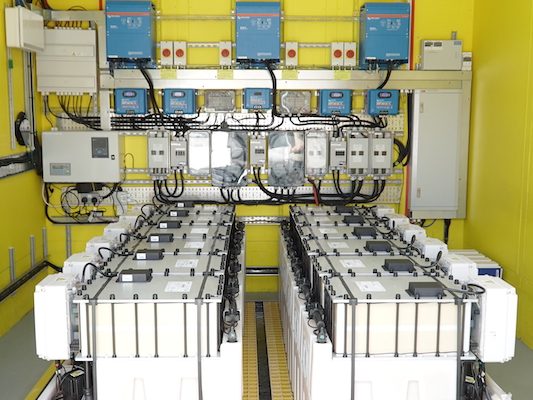
Image: Redflow/Swansea University.
A 120kWh zinc-bromine flow battery storage system from Redflow has now been fully commissioned and is operating at Swansea University.
It is storing and suppling renewable energy on a microgrid that powers the Swansea University Active Building demonstrator, which the university said is a “classroom that generates, stores and releases solar energy at the point of use”.
The 12 x ZBM2 zinc-bromine flow battery energy storage system was purchased by the university in March, with the duo now working to develop additional areas for cooperation and collaboration.
The university chose Redflow’s technology due to its ability to deliver 100% of the rated system energy every day without degradation over its 10 year life.
“These characteristics were crucial considerations for us, and our application requires battery discharge duration of 4-8 hours depending on the time of year, making Redflow’s flow battery the ideal fit for our requirements in comparison to more conventional lead-acid or lithium alternatives,” Swansea University’s technology transfer fellow (smart systems) Tom Griffiths said.
Redflow lauded its 10kWh flow battery units as the only commercially available flow battery energy storage system that allows accurate sizing for a 120kWh system.
The Swansea microgrid has been built around the system, and is supplied with building-integrated thin-film solar PV alongside a solar wall providing warm air to a heat-pump for space and water heating.
Since its construction, the classroom has proven the Active Buildings concept, the university said, by generating more energy than it has used over an annual cycle. Whilst the commissioning process was “simple”, according to Griffiths, there was a slight delay due to COVID-19.
Tim Harris, CEO & managing director of Redflow, said the company is “delighted” that the university selected its technology.
“This project with its dual renewable generation sources will be a bench-mark for flow-battery minigrids. This is an emerging segment that Redflow is focused upon, having recently deployed some PV-only minigrids in the agricultural sector in Australia.”
